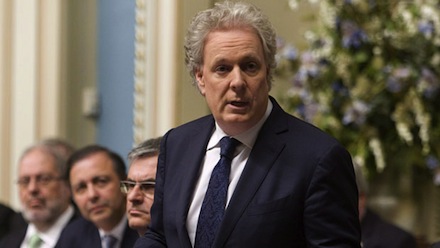After 100 days of protests from students against a planed tuition fees, and after passing Bill 78, a specific emergency law designed to curb the excesses of the protest (even though polls show that two-thirds of Québec residents are in favor of the government’s position and not the students), with The Globe and Mail quoting signs that read “Québec is becoming a dictatorship,” and with oddsmakers giving military rule in Québec only 5.5:1 odds, well, it might be a sign that Jean Charest’s longtime government may be coming to a denouement.![]()
![]()
It’s stunning to think that the leader of a party that was a precursor to Stephen Harper’s Conservative Party has been the premier of the traditionally more progressive, statist Québec for nearly a decade.
Charest was the leader of the Progressive Conservative party from 1993 to 1998, when it held anywhere from two to 20 seats in the House of Commons, and long before its assimilation into the Canadian Alliance, and Harper’s conservative majority. (Remember that in Canada, provincial parties are not merely extensions of federal parties, even if they share the same name: in the April Albertan election, for example, many federal Conservatives supported not the Progressive Conservatives, but the Wildrose party.)
Yet, Jean Charest has been running Québec’s government since 2003, and he has headed Québec’s Liberal Party since 1998, all without ever becoming terribly popular — and indeed, Charest has spent most of his time as Québec’s premier fairly unpopular — for the better part of a decade, it’s been Québec’s uncannily undead government.
But in the fight over student tuition fees, as a potentially explosive corruption inquiry also gets underway this week, Charest may have found his Waterloo. Continue reading Watershed moment for longtime premier Charest amid Québec student protests

